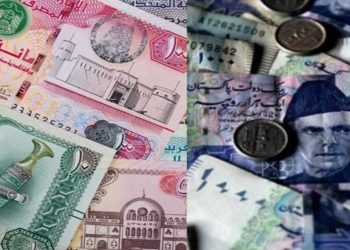Pakistan has reached a staff-level agreement with the International Monetary Fund (IMF) to revive the Extended Fund Facility (EFF) programme. Pakistan is expected to receive the next tranche of $1 billion but the deal has been shrouded in uncertainty and the terms have not been completely disclosed.
The deal has certainly been done on tough terms. Pakistan will have to make fiscal adjustments over Rs800bn by raising revenues and slashing down expenditures. The announcement of the deal failed to make an impact as the stock market plummeted and the rupee further slid. The price of petroleum will rise further as Pakistan has increased petroleum development levy (PDL) by Rs4 every month as part of the agreement. The central bank already increased interest rate to 8.75% which will affect businesses already suffering a gas crisis.
The government will have to implement certain actions before receiving the next tranche by Jan 2022. This included passing the SBP Amendment Bill and presenting a mini-budget to abolish GST exemptions. This is the first time the sovereign parliament has to approve laws as part of prior actions under the IMF programme and shows how the government submitted before the global financial institution.
It will be a huge challenge for the PTI government to get the bills approved within the timeline but unless these prior actions are not taken, the IMF is unlikely to approve the loan agreement. The government has convinced the IMF for removal of GST exemptions worth Rs350 billion from the initial target of Rs700 billion, power tariff was hiked by Rs1.38 per unit and the SBP Amendment Bill has been rationalised.
The IMF further wants Pakistan to reduce the budget deficit, increase tariffs on electricity and petrol, as well as curb money laundering. These fiscal tightening measures will make the prime minister unpopular as inflation and the price of essential commodities have soared. Pakistan also has an uneasy relationship with United States which exerts major influence on the IMF.
The opposition has slammed the government for its dealings which have been shrouded in secrecy, calling it unacceptable recolonisation and alleging that the central bank will report to the IMF. It is imperative the harsh terms of the deal should be disclosed before the nation and the Parliament should be taken into confidence over macroeconomic decisions. The failure to do so will have deep repercussions for the economy and will make the government deeply unpopular.




























